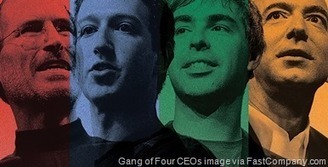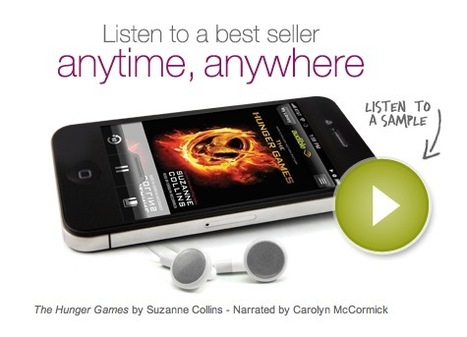
|
Scooped by
Robin Good
March 11, 2013 12:33 PM
|
Thanks to Marty Zwilling on StartupProfessionals for distilling some of the key traits that have made Amazon, Apple, Facebook and Google such uniquely successful companies.
From the article intro: "According to many technology pundits, including Phil Simon, in his book “The Age of the Platform,” these four exemplify the rise of platforms with applications as a business model, rather than a single product or service. Whether you believe his conclusion or not, you can learn a lot from the lessons he offers on how to build a competitive business model today."
The article provides ten key principles utilized by this "gang of four" to reach their broad business success.
Here my favorite four:
1) Act small. “Bigness” and all of its attendant problems – bureaucracy, politics, infighting, and the like – put any business model at risk. Bureaucracy and excessive democracy kill speed. Shake organizations up often to avoid stiff and inflexible management structures.
2) Be open and collaborative. Startups as well as large companies must be open to all sorts of new ventures, partnerships, and offerings. Make application programming interfaces (APIs) open and freely available to developers, partners, and consumers.
3) Move quickly and decisively when spotting a niche. Don’t confuse patience with inertia. Waiting too long means that an opportunity may disappear permanently – or someone else may beat you to the punch. Temper expectations, but make the bet.
4) Use existing tools. It’s time consuming, expensive, and simply unnecessary for every company to create its own tools and base functions (planks) from scratch. By using outposts, businesses increase serendipity, exposure, and cross-pollination.
Valuable. To the point. 7/10
Full article: http://blog.startupprofessionals.com/2013/03/10-entrepreneurial-lessons-from-gang-of.html



 Your new post is loading...
Your new post is loading...









is your next business model a platform?
This great blog post captured by curator Robin Good talks about platforms and the gang of four (Amazon, Google, Apple, and Facebook).
"Today’s dizzying pace of change shows no signs of abating. If anything, it is likely to accelerate. So do everything you can to heed these lessons today, to be as prepared as possible for a vastly different tomorrow."
The ten lessons identified remind me also of the work of Rita McGrath (End of Competitive Advantage) who talks about six key areas in what she calls "The New Strategy Playbook":
1. Continuous Reconfiguration
2. Healthy Disengagement
3. Deft Resource Allocation
4. Innovation Proficiency
5. Discovery Driven Mindset
6. Entrepreneurial Career Management
and also the book, The Power of Pull...